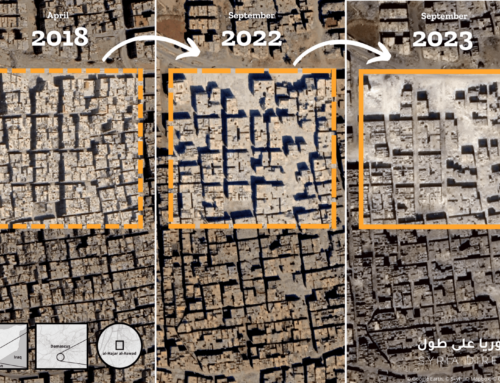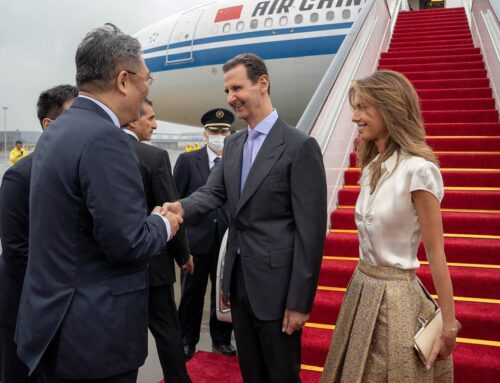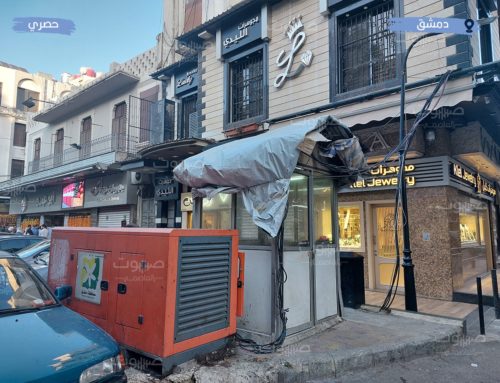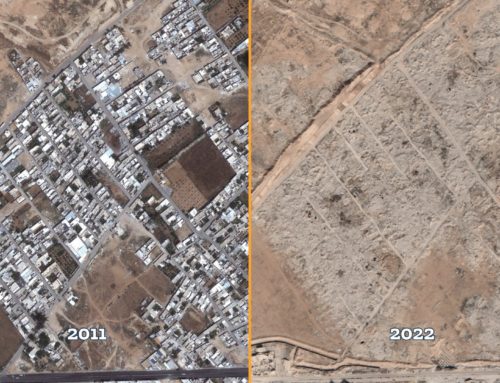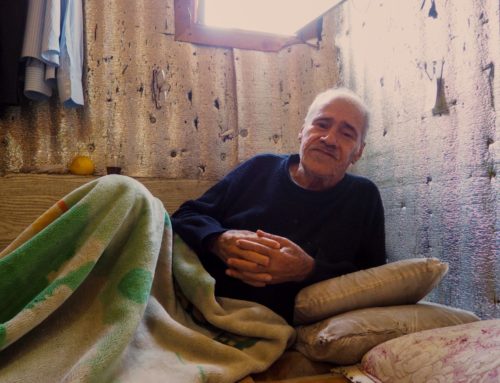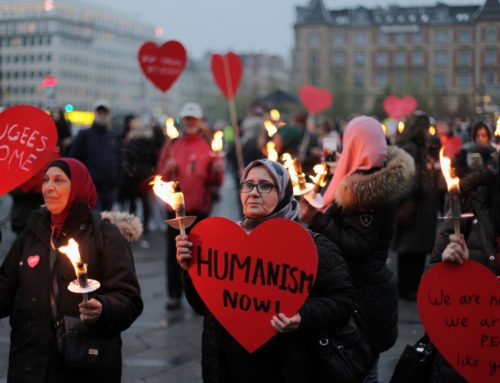Encircled by the regime and ruled by Jaysh al-Islam, Douma residents run out of options
November 26, 2014 Syrian armed forces captured the last supply […]
26 November 2014
November 26, 2014
Syrian armed forces captured the last supply road into the rebel-controlled city of Douma in early November, effectively completing its encirclement of the East Ghouta town.
Douma is now encircled from all sides by regime forces.
Residents say prices have skyrocketed since then, making what was an already a harsh life under the rule of Jaysh al-Islam even more difficult.
Regime forces have stepped up efforts to seize Douma bombing the city from both the air and the ground.
Earlier this week, in what opposition activists say a stunt to garner good publicity, the regime allowed dozens of families to leave the encircled city peacefully on Monday.
The humanitarian situation has greatly deteriorated since the regime increased its pressure on the city, says Ismael Abdullah, a Douma resident who works as a money exchanger.
With limited incomes and joblessness, residents have to carefully choose how they spend their money.
“We only eat one meal a day,” Abdullah tells Syria Direct’s Ammar Hamou.
“We cook the meal late, around sunset, so we won’t eat again that day.”
Q: What is the average salary in Douma?
The average salary is about $75 a month. Many people who worked with aid organizations have not received their salaries for four months – most of them now work as street vendors. There are very few rich people. They work in money exchange and selling electricity.

Q: How have the prices of food changed since the closing of al-Wafidin Camp [on the last supply road into Douma]?
Rice was $1.90 before [the crossing closed] and is now $7.00 per kilo. Sugar was $1.60 and now is $7.20 per kilo. Flour was $2.15 and now is $4.00 per kilo.
The prices rose within days of the road’s closing. I think it will keep rising as the winter continues.
Q: What do people use for cooking and heating? How much does fuel cost?
Wood is mainly used for cooking and heating. One kilo of wood is about $0.35. Other people use different methods for heating and cooking, like burning trash. Very few people use methane gas and it’s being extracted in a primitive way in Douma. Its [high] price doesn’t match the average income.
Q: How have you managed with the increase in food prices?
We only eat one meal a day. We cook the meal late, around sunset, so we won’t eat again that day.
Q: How do people balance between their income and nexpenses?
The income does not match the expenses. Many people receive money from their relatives outside of East Ghouta or outside Syria.
Q: How do you get around in the city with such a huge shortage of fuel? Do you use cars?
We walk or use bicycles and horse-drawn carts. Some opposition battalions and aid organizations use cars.
Q: What is the medical situation like in Syria?
There aren’t enough doctors to cover people’s needs. In all of Douma there
are only 10 doctors. Medicine is mostly not available and when it is available, the
prices are high. The price of the pain relief medicine diclofenac is around $4.25.
Surgeries are being performed without anesthesia.
Q: How is the electricity at your house?
The fridge is being use as a closet. People share one line of electricity from the neighborhood generator to wash their clothes and charge their phones. Electricity from the neighborhood generator now costs $44 a month for two hours a day.
For more from Syria Direct, like us on Facebook or follow us on Twitter.


